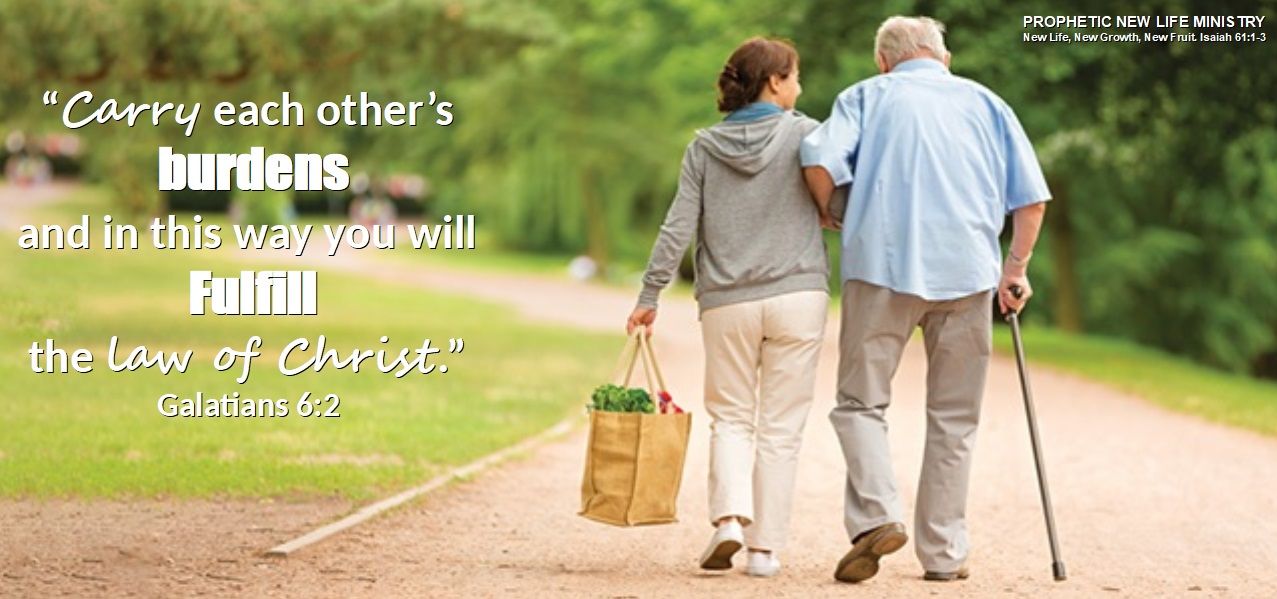THE SEED
Carry each other’s burdens, and in this way, you will fulfill the law of Christ. Galatians 6:2 NIV.
Sharing someone else’s burden is a sign of love. One cannot overcome their neighbor’s obstacles if one lacks love for them. A wonderful way to explain love is through the parable of the good Samaritan. The Samaritan,n who had never met this wounded man before,e took care of him, brought him into an inn, paid his expenses, and even offered to pay more if more were needed.
Worries stem from burdens that are unbearably heavy, tiresome, or challenging to the point where they influence behavior or thoughts. Love, serenity, and joy are shared when the burdens of the church and family members are carried.
Everybody experiences burdens at some point in life. Sometimes, they are just concerns or problems that don’t matter as much to other people. When a brother or sister in Christ is going through a difficult time, we should offer more than just our sympathy; we can pray for them, be encouraging, provide care, believe in them, and even just listen to them. We may support one another in our tiny ways. This is what God requires of us; it’s charity.
BIBLE READINGS: Luke 10: 30-37
PRAYER: Dear Jesus, help me to love my neighbor as myself, Amen.
ÀJÀGÀ ẸLÒMÍRÀN
IRUGBIN NAA
“Ẹ máa ru ẹrù ọmọnìkejì yin , kí ẹ sí fi bẹ ẹ mú òfin Kristi ṣẹ.” Gálátíà 6:2
Ríru àjàgà ẹlòmíràn jẹ́ àmì ìfẹ́. Èniyàn kò lè ba aládùúgbò rẹ̀ borí àwọn óhun ìdènà iwájú rẹ̀ tí kò bá ní ìfẹ́ sí wọn. Ọ̀nà àgbàyanu láti ṣàlàyé ìfẹ́ jẹ́ nípasẹ̀ àpèjúwe ará Samáríà rere. Ara Samáríà tí kò tíì rí ọkùnrin tó gbọgbẹ́ yì rí, ó mú ọkùnrin to gbọgbẹ́ wá sí ilé èrò. Ó san owó ìtọ́jú rẹ ̀, kódà ó tún sọ pé òun yió san púpọ̀ sí i tí wọ́n bá nílò sí i. Awọn aniyan a máà dide lati ara àjàgà ti o ba wuwo kọjá àfaradà, pẹ̀lú aarẹ, tabi ìpèníjà titi de ààyè kan. Nibiti wọn ti ni ipa lori ihuwasi tabi awọn èrò eniyan. Ìfẹ́, ìfọ̀kànbalẹ̀, àti ayọ̀ ni a pín nígbàtí a bá gbé ẹrù ìjọ àti àwọn mọ̀lẹbí. Gbogbo eniyan ni o ni ìrírí gbígbé àjàgà de ààyè kan ninu igbesi aye wọ́n. Nigba miiran wọn jẹ awọn ifiyesi tabi awọn iṣoro ti ko ṣe pataki pupọ si awọn eniyan miiran. Nígbà tí arákùnrin tàbí arábìnrin kan nínú Kristi bá ńdojú kọ àkókò tí ó le koko, a gbọ́dọ̀ fi ọ̀pọ̀ ìyọ́nú wa hàn; a le gbadura fun wọn, a le gbà wọn níyànjú, a le ṣé ìtọ́jú, a lé gbàgbọ́ ninu wọn, kía sì tẹti sí ohùn ti wọn ba fẹ́ sọ. A le ṣe atilẹyin fun ara wa, ni awọn ọna ti ìpa wa ba mọ́. Èyí ni ohun tí Ọlọ́run ń béèrè lọ́wọ́ wa; ìfẹ́ ni eyi.
BIBELI KIKA: Lúùkù 10:30-37
ADURA: Jesu mi, ran mi lọwọ lati nifẹ ọmọnikeji mi bi ara mi.
